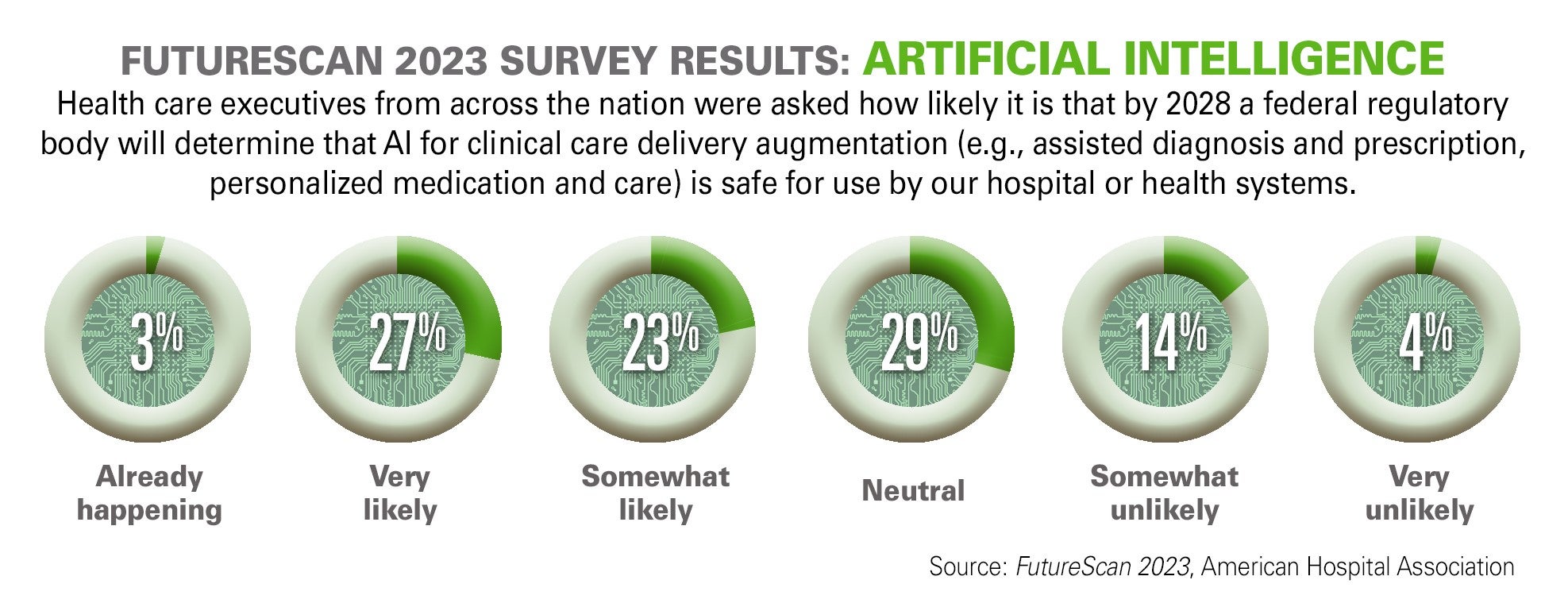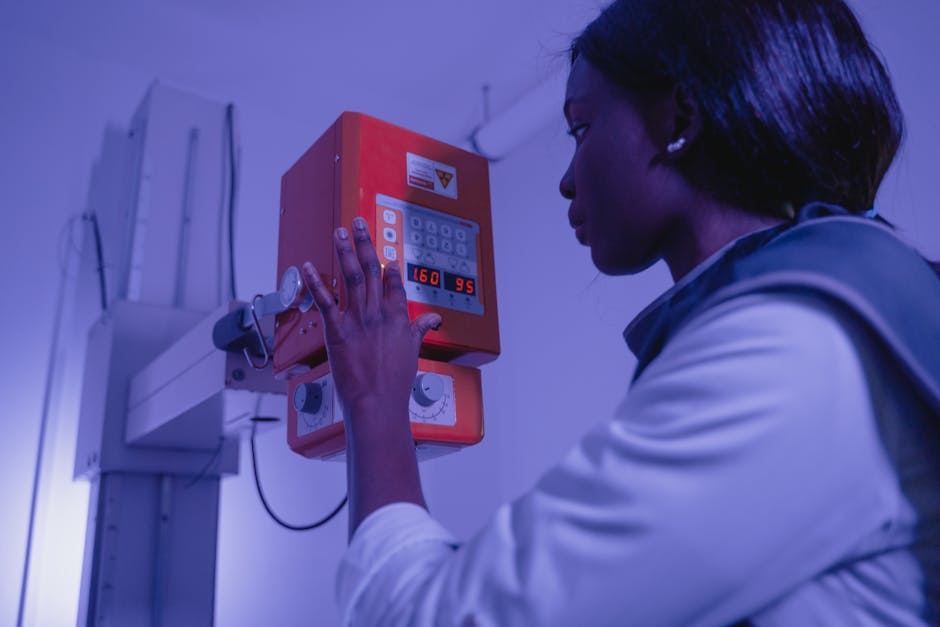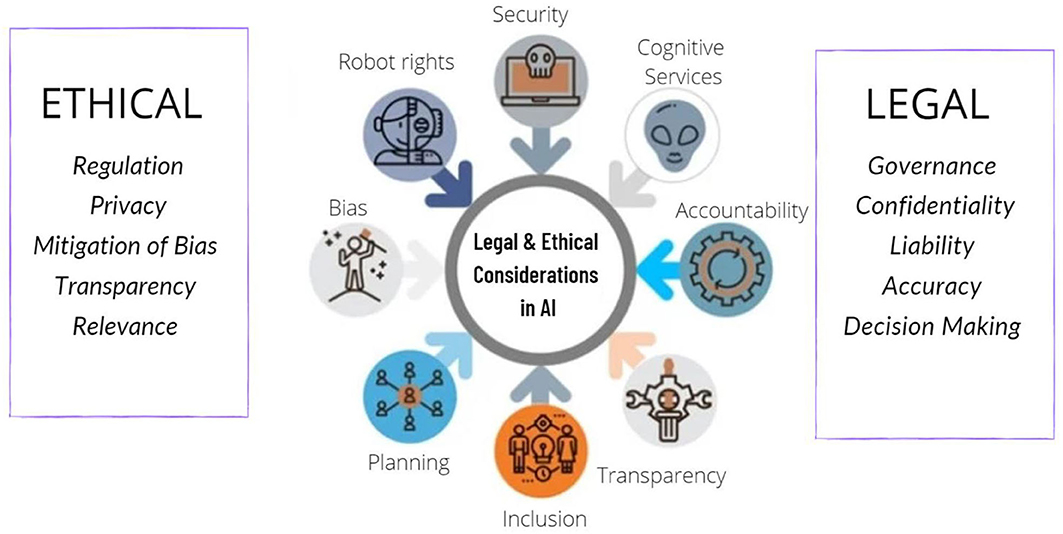As we stumble through life, constantly battling our own mortality like a never-ending game of Whac-A-Mole, one thing becomes abundantly clear: we could all use a little help when it comes to staying healthy. Enter artificial intelligence, the brainiac sidekick to our bumbling human doctors, here to revolutionize the world of modern healthcare like a superhero in scrubs. From diagnosing diseases with the speed of a caffeine-fueled toddler to creating treatment plans so personalized they practically have our names embroidered on them, AI is shaking things up in the medical world faster than you can say ”I’ll take a robot over a cold stethoscope any day.” So grab your virtual scalpel and prepare to be amazed by the innovative impact of AI on our oh-so-fragile mortal coils.
Current Applications of Artificial Intelligence in Healthcare
Artificial intelligence has taken the healthcare industry by storm, revolutionizing the way we approach patient care and diagnosis. From improving efficiency to predicting potential health risks, AI is making a big impact in healthcare. Let’s dive into some of the current applications of artificial intelligence in the medical field!
One of the most fascinating uses of AI in healthcare is in diagnostic imaging. With the help of machine learning algorithms, radiologists can now more accurately detect diseases such as cancer and heart conditions from medical images. It’s like having a super-powered, virtual assistant that never gets tired of looking at X-rays and MRIs.
AI is also being utilized in predictive analytics to identify patients at risk of developing certain diseases. By analyzing large amounts of patient data, AI can help healthcare providers intervene early and prevent potential health issues. It’s like having a crystal ball that tells you when to start eating more kale and hitting the gym!
Another exciting application of AI in healthcare is in robotic surgeries. With the precision and accuracy of AI-powered robots, surgeons can perform complex procedures with more efficiency and minimize the risk of human error. It’s like having a surgical assistant that never breaks a sweat or accidentally sneezes during surgery!

diagnostics-and-treatment-options-through-ai-technology”>Enhancing Diagnostics and Treatment Options through AI Technology
Who knew that robots could make better doctors than humans? With AI technology revolutionizing the field of medicine, diagnostics and treatment options are reaching new heights of accuracy and efficiency.
Imagine a world where your doctor is a super-smart robot, diagnosing your ailments with precision and recommending personalized treatment plans based on your unique genetic makeup. No more guessing games or misdiagnoses!
Thanks to AI, medical imaging techniques have been enhanced to detect even the tiniest abnormalities that could potentially be missed by the human eye. So next time you get an X-ray or MRI, rest assured that nothing will escape the watchful gaze of our robot overlords!
With machine learning algorithms constantly evolving and improving, the future of healthcare looks brighter and more automated than ever. Who knows, maybe one day we’ll be getting our check-ups done by a friendly robot nurse named Dr. AI!

Improving Patient Care and Monitoring with AI Solutions
Technology is evolving at a rapid pace, and the healthcare industry is no exception. With the introduction of AI solutions, patient care and monitoring have reached new levels of efficiency and accuracy. Imagine a world where your health is constantly monitored by intelligent algorithms, ensuring you receive the best possible care at all times.
AI solutions can analyze vast amounts of patient data in real-time, allowing healthcare providers to make faster and more accurate diagnoses. This means fewer delays in treatment and ultimately better outcomes for patients. Plus, with AI’s ability to learn and adapt over time, the quality of patient care will only continue to improve.
Gone are the days of long wait times and missed symptoms. AI solutions can streamline the healthcare process, ensuring that patients receive the care they need when they need it. With features like personalized treatment plans and remote monitoring capabilities, patient care has never been more convenient or effective. Trust in the power of AI to revolutionize the way we approach healthcare.
Optimizing Hospital Operations and Workflow with AI Integration
Is your hospital struggling to keep up with the never-ending chaos in its operations and workflow? Well, fear not! AI integration is here to save the day!
Imagine a world where your staff no longer have to manually sift through mountains of paperwork or play a game of telephone to communicate important information. With AI, tasks such as scheduling appointments, managing inventory, and even predicting equipment maintenance can all be automated.
AI can also help optimize resource allocation by analyzing data patterns and predicting patient flow. No more guessing games or running around like headless chickens trying to figure out where to place patients or which department needs more staff. Let the AI do the brainwork for you!
And that’s not all! With AI integration, your hospital can streamline its operations, reduce errors, and ultimately provide better patient care. It’s like having a trusty sidekick that’s always one step ahead, making sure everything runs smoothly. So, what are you waiting for? Embrace the future of healthcare with AI integration!

Challenges and Ethical Considerations in Implementing AI in Healthcare
So, you want to implement AI in healthcare, huh? Buckle up, because you’re in for a wild ride! Here are some of the challenges and ethical considerations you’ll need to navigate along the way:
Privacy Concerns: Patient data is like a precious treasure chest, and you need to make sure it’s locked up tight. With AI collecting and analyzing sensitive information, there’s a high risk of privacy breaches. So, make sure you have top-notch security measures in place to keep those nosy hackers at bay.
Algorithm Bias: AI may be smart, but it’s not immune to biases. If your algorithms are trained on skewed data sets, they may end up making discriminatory decisions. Be sure to regularly audit and tweak your algorithms to ensure they’re not playing favorites.
Legal Hurdles: Navigating the legal landscape when it comes to AI in healthcare can feel like running through a maze blindfolded. From regulatory compliance to liability issues, there’s a lot of red tape to cut through. So, it’s crucial to have a team of legal experts by your side to help you steer clear of trouble.
Future Trends and Developments in AI-driven Healthcare Innovations
In the fast-paced world of AI-driven healthcare innovations, the future holds some exciting developments that are sure to revolutionize the industry. One trend to keep an eye on is the rise of virtual nurses, who will provide 24/7 care and support to patients from the comfort of their own homes. Imagine having a virtual nurse named Nurse Bot-5000 who can dispense medication, answer medical questions, and even provide a shoulder to cry on when needed.
Another exciting development to look out for is the use of predictive analytics in healthcare. By analyzing vast amounts of data, AI algorithms will be able to predict which patients are at risk for certain conditions and provide personalized treatment plans to prevent illness before it even occurs. Say goodbye to waiting around in doctor’s offices and hello to proactive healthcare!
Additionally, advancements in AI-driven robotic surgery are poised to revolutionize the operating room. Surgeons will be able to perform more precise and less invasive procedures with the help of robotic assistants like RoboSurgeon-2000. These robotic assistants will have the ability to perform tasks with unparalleled accuracy, making surgery safer and more effective for patients.
Overall, the future of AI-driven healthcare innovations promises to be both exciting and transformative. From virtual nurses to predictive analytics to robotic surgery, the possibilities are endless. So buckle up and get ready for a wild ride into the future of healthcare!
FAQs
Can artificial intelligence actually improve healthcare?
Of course! With AI, healthcare providers can diagnose diseases faster and with more accuracy, personalize treatment plans based on individual data, and even predict potential health issues before they occur. It’s like having a crystal ball, but with better resolution!
How does AI help in medical imaging?
AI can analyze medical images, such as X-rays and MRIs, in a fraction of the time it takes a human doctor. This means quicker diagnosis, less margin for error, and more time for doctors to catch up on their Netflix shows (just kidding… kind of).
Is AI taking over the jobs of healthcare professionals?
Not exactly. AI is meant to assist, not replace, healthcare professionals. Think of it as having a really smart sidekick who can crunch numbers and analyze data while you focus on providing compassionate care to patients. Plus, those AI robots can’t give hugs like we can!
Can AI help in drug discovery and development?
Absolutely! AI can analyze massive amounts of data to identify potential drug candidates, predict how drugs will interact with the body, and even optimize clinical trials. It’s like having a virtual lab assistant who never complains about cleaning test tubes.
Are there any ethical concerns with using AI in healthcare?
Certainly! Questions about privacy, data security, and algorithm bias are all valid concerns when it comes to AI in healthcare. It’s important for developers and healthcare providers to address these issues and ensure that AI is used responsibly and ethically. After all, we don’t want Skynet taking over the hospital!
—
Time to say goodbye… (until AI takes over that too!)
Well, that’s all for now, folks! We hope you’ve enjoyed this deep dive into the fascinating world of AI in healthcare. Remember, the future is bright, the robots are coming, and we’ll all be healthier because of it (hopefully)! Stay tuned for more mind-blowing advancements and until next time, keep calm and trust the machines! 😜🤖🚀





